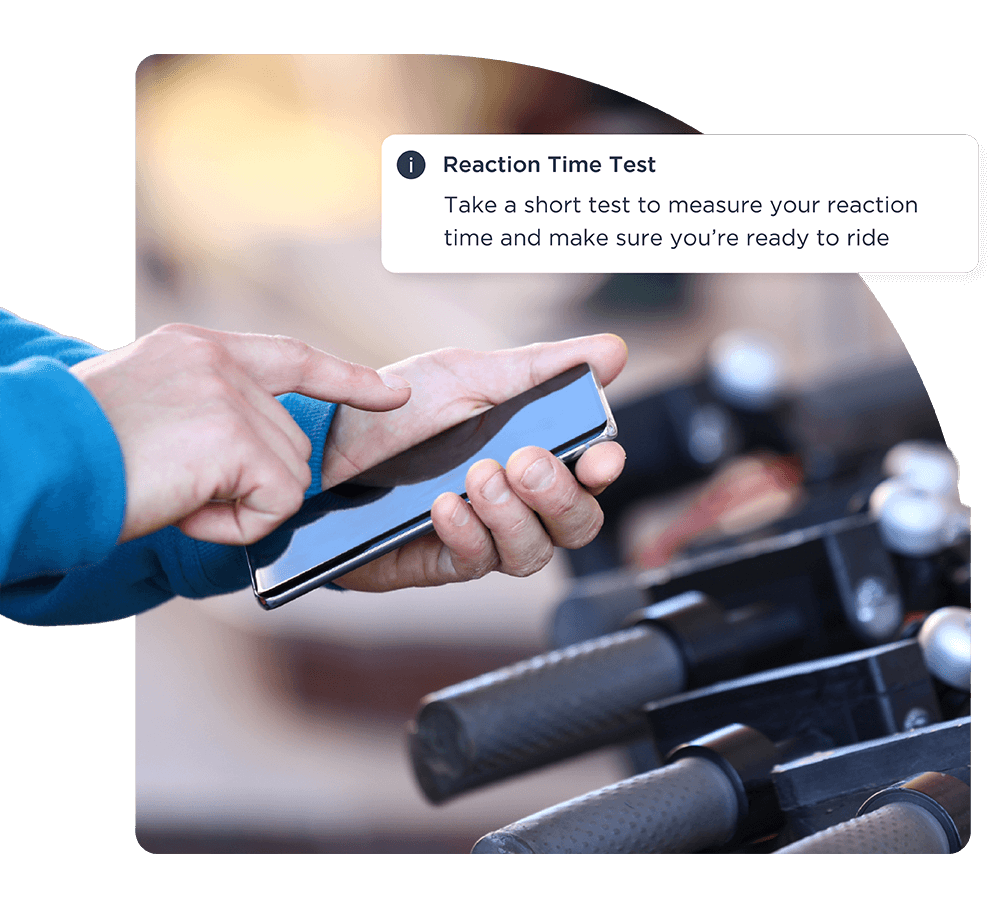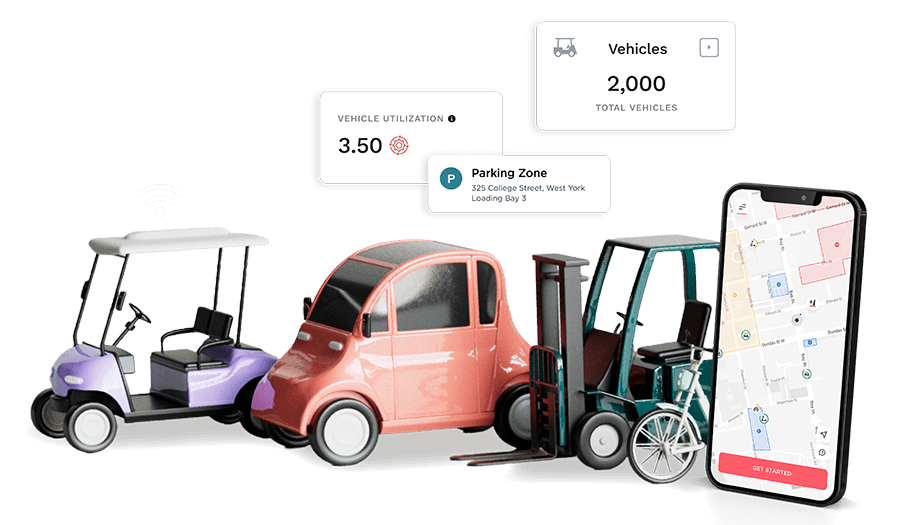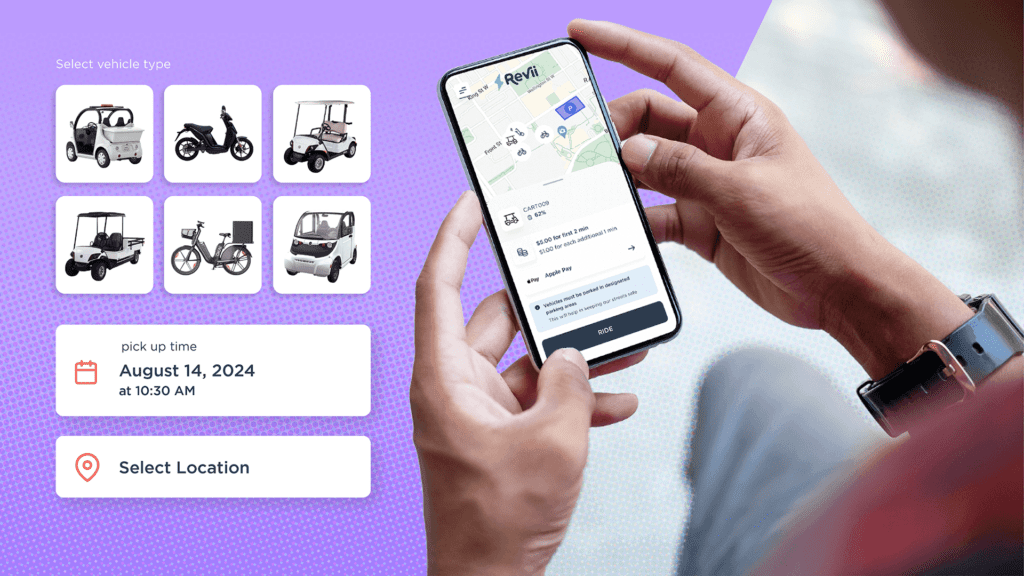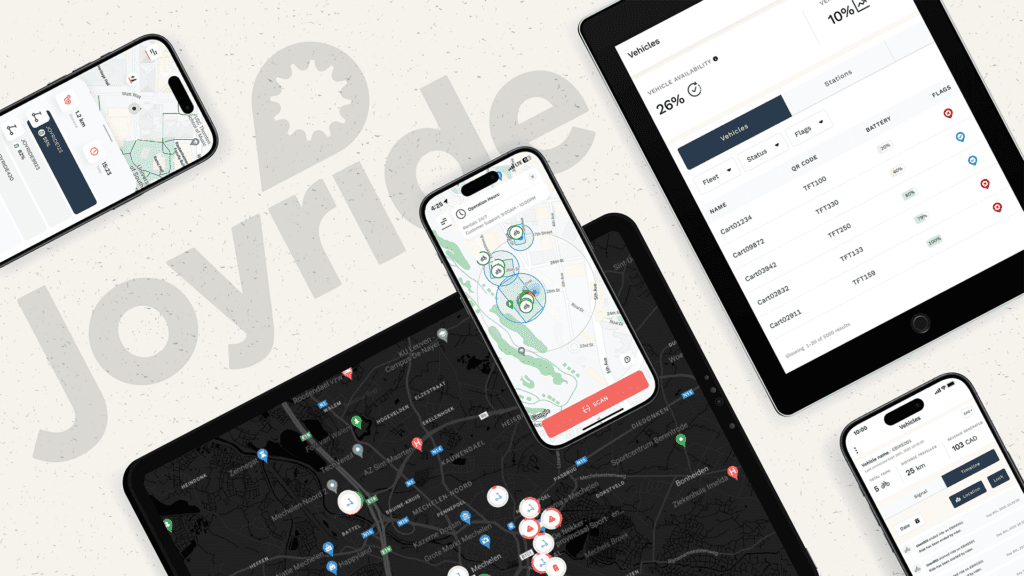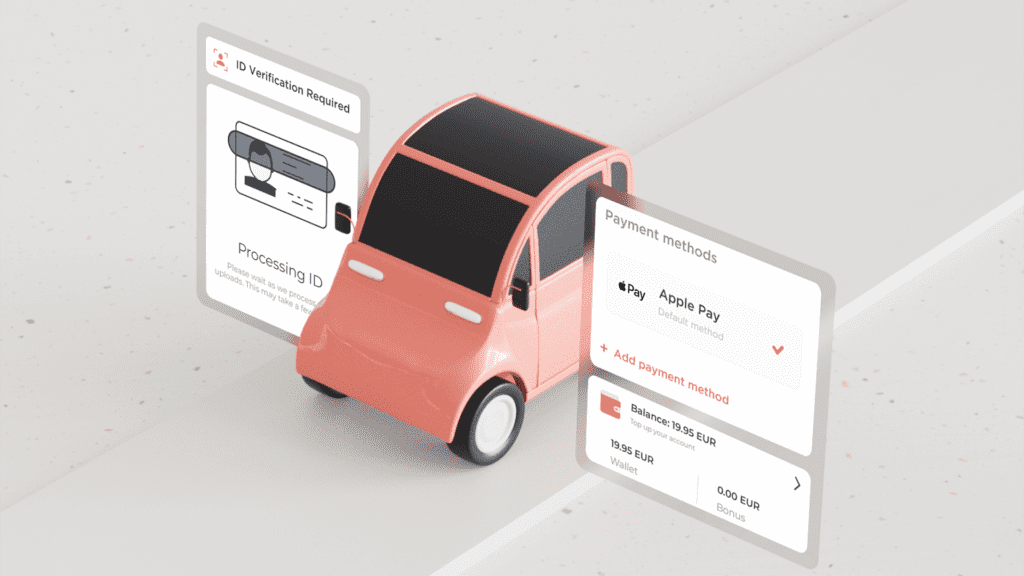Universities and college campuses are breeding grounds for innovation. Student transportation should be, too. Implementing a network of electric, sustainable and smart-connected vehicles on campus can transform student life as we know it. So how do we get there?
Enter the regulated university-run shared mobility system – a modern yet simple solution to tackle safety, transportation and on-campus logistical issues head-on.
Electric vehicles on campus, from scooters and e-bikes to golf cars and low-speed minicars, have the ability to enhance the college experience and make the administration side of things a breeze. Let’s take a closer look.
FREE JOYRIDE ACADEMY COURSE
Modernize Campus Transportation Options
Enhance your understanding of how an electric vehicle sharing system can fit with a university’s overall transportation plan, and benefit student wellbeing through improved campus connectivity.
Fuelling the demand for on-demand transportation
University-aged students, otherwise known as Generation Z, have never known life outside of the digital world. This generation of students prefers – and expects – instant access to information, products, food and transportation.
This cohort is also less likely to own a car than any previous generation. In fact, a recent study conducted by Turo found that more than 50% of young Millennials are foregoing car ownership due to financial reasons.
With the global shared mobility market expected to surpass $1.2 trillion in five years, the growing reliance on smartphones continues to unlock opportunities among this generation. For example, the global automotive keyless entry market will reach $3 billion by 2028, while 80% of Gen Z already uses their phones to book travel and rental experiences, preferring mobile check-ins.
The demand is also there for more sustainable travel. On average, gasoline cars emit more than 350 grams of CO2 per mile driven over their lifetimes. With limited fuel consumption and zero emissions, small electric vehicles are increasingly viable solutions to pollution problems stemming from gas-powered shuttles and on-campus bussing.
Should e-scooters and e-bikes be allowed on campus?
The demand for instant, shared ridership is there. So how can it be fed feasibly? One of the most critical safety concerns surrounding e-scooters is the risk of battery fires. The damages caused by an electric vehicle battery fire can be exorbitant, potentially running into hundreds of thousands of dollars or more.
Rather than risk student well-being, some universities have chosen to ban personal electric vehicles in student dorms and on campus grounds. While this solution is well-intentioned, it’s proven to be a bit of a PR nightmare.
After all, nothing says “we’re out of touch” like denying people access to sustainable, accessible transportation.
A more forward-thinking approach is to implement a university-run shared micromobility program. While many universities currently collaborate with shared micromobility companies like VEO and Spin, internalizing operations opens the door to new on-campus job opportunities, fostering a sense of ownership and community engagement with the student population.
Fill the last-mile gap between campus and public transit
Safely charge, track, and store electric vehicle batteries
Make transportation options more equitable
The ‘smart’ solution for campus mobility management
While the decision to permit electric vehicles on campus requires careful consideration of safety and logistical factors, a university-run shared mobility program represents a forward-thinking solution that harmonizes the best interests of students and university administrators alike.
Centralized oversight also means that the university administration can manage where, when, and how e-scooters and e-bikes are ridden. This is done through a fleet management system like Joyride:
Fleet management software for university electric vehicles
Every shared mobility system – whether public e-scooters rides, or private university bike rentals – has two main software components: the Rider App and the Dashboard.
The Dashboard serves as the control center, providing a comprehensive overview of each connected vehicle, battery, and docking station in real time. From this backend management system, administrators can monitor the location of each vehicle, track usage patterns, and manage maintenance schedules.
Additionally, the Dashboard is where geofence boundaries will be set to enforce parking rules, slow-speed zones and areas off limits to e-bikes and e-scooters.
On the other hand, the Rider App serves as the gateway for users (in this case students) to access campus-owned vehicles, without any paperwork or manual processes. Through the app, students can locate nearby scooters and bikes, scan the vehicle QR code, then zip off to class or nearby amenities.
The Rider App also provides valuable features such as trip history, pricing details, safety guidelines, and customer support. These two software components–paired with reliable commercial quality hardware–form a cohesive ecosystem for managing electric vehicles on campus.
Ready to level up campus connectivity?
With the benefits of shared mobility on campus becoming increasingly apparent, leveraging a fleet management platform like Joyride provides a turnkey solution for seamless implementation and management.
Interested in introducing or upgrading e-scooter, e-bike, minicar, golf cart and moped sharing at a university or college near you? We’ve made the ultimate cheat sheet for smart campus micromobility management on Joyride Academy.
Enroll here to start learning (no tuition fees necessary!)
